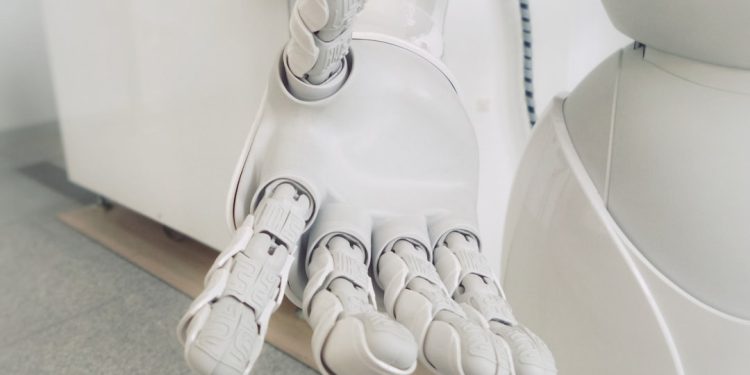No products in the cart.
How AI is Revolutionizing Cancer Care: A New Era of Hope
Artificial Intelligence is reshaping cancer care, offering innovative solutions and hope for patients worldwide.
Imagine a world where a computer can help doctors predict the course of cancer with unprecedented accuracy. This is not science fiction; it’s happening now. Artificial Intelligence (AI) is transforming cancer care, providing tools that enhance diagnosis and treatment, ultimately leading to better patient outcomes.
As we step into 2025, AI is more than just a buzzword in healthcare. It’s a lifeline. From predictive analytics that forecast disease progression to personalized treatment plans tailored to individual genetic profiles, AI is at the forefront of a medical revolution. Just last month, a study published in The Lancet revealed that AI algorithms could analyze radiology images faster and more accurately than seasoned radiologists, reducing the time to diagnosis dramatically.[1]

But what does this mean for patients battling cancer? Meet Sarah, a 32-year-old mother of two, diagnosed with breast cancer last year. For Sarah, the traditional path of treatment felt overwhelming. The uncertainty of treatment efficacy weighed heavily on her and her family. However, through a clinical trial utilizing AI technology, her oncologist was able to customize her treatment plan based on real-time data and predictive modeling. The result? A significant reduction in tumor size within months, bringing a renewed sense of hope.
The Mechanics of AI in Oncology
 Artificial Intelligence
Artificial IntelligenceElevating AI Literacy in Journalism Education
Journalism schools are evolving to teach AI literacy, equipping students with essential skills for the future of media and data…
AI’s integration into cancer care isn’t just about fancy algorithms; it’s about enhancing human capability. At the heart of AI technology are machine learning and deep learning systems that can sift through vast amounts of data—think millions of patient records, genetic information, and treatment outcomes—far beyond what any human could process.
At the heart of AI technology are machine learning and deep learning systems that can sift through vast amounts of data—think millions of patient records, genetic information, and treatment outcomes—far beyond what any human could process.
One of the most promising applications is the use of AI in developing tailored treatment plans. By analyzing genetic markers and patient history, AI can recommend therapies that have the highest success rates based on similar cases. This personalized approach minimizes the trial-and-error aspect of cancer treatment, which has historically led to prolonged suffering for patients.
Moreover, AI aids in early detection. Algorithms are now being trained to recognize subtle patterns in imaging data that humans might overlook. A recent report from Stanford University highlighted how AI can identify lung cancer with a 94% accuracy rate, surpassing the performance of expert radiologists in some cases[2].
Broader Implications and Challenges
While the benefits of AI in cancer care are manifold, the journey is not without its challenges. One significant concern is the ethical implications of data privacy. As healthcare providers increasingly rely on patient data to train AI models, stringent measures must be put in place to ensure that sensitive information is protected. The balance between innovation and privacy is a tightrope that the healthcare industry must navigate carefully.
 Career Growth
Career GrowthHumanities Graduates: The Unexpected Leaders of the AI Era
Humanities graduates are emerging as key players in the AI landscape, bringing essential skills in ethics and empathy to technology-driven…
Read More →Furthermore, there’s the issue of accessibility. As with many technological advancements, there’s a risk that AI in cancer care could widen the gap between those who have access to cutting-edge treatments and those who do not. Global disparities in healthcare infrastructure mean that not every patient will benefit equally from these innovations. Organizations like the World Health Organization are advocating for equitable access to AI technologies to ensure that all patients, regardless of geography, receive the best possible care.
The Road Ahead
Looking forward, the future of AI in cancer care is bright, but it will require collaboration among technologists, healthcare providers, and policymakers. As AI continues to evolve, it will undoubtedly lead to more breakthroughs. The aim is clear: to enhance the quality of life for patients, reduce the burden on healthcare systems, and ultimately save lives.
As healthcare providers increasingly rely on patient data to train AI models, stringent measures must be put in place to ensure that sensitive information is protected.
For Sarah and millions like her, the hope is palpable. With AI as a partner in their fight against cancer, the odds are shifting. The landscape of oncology is changing, and with it, the stories of resilience and recovery are being rewritten. As we embrace this technology, we are not just investing in tools; we are investing in lives—one algorithm at a time.











